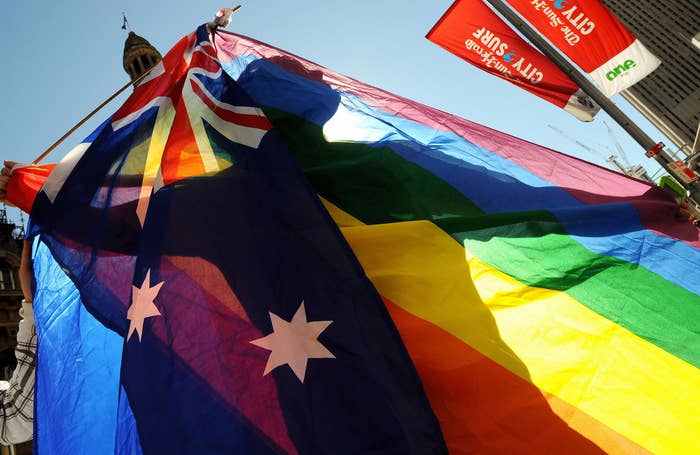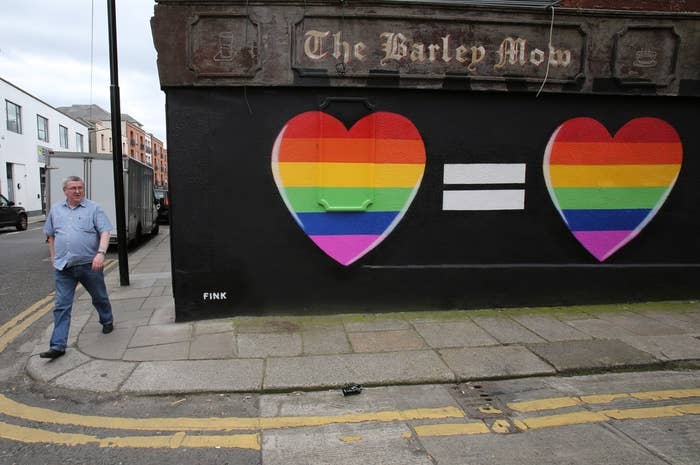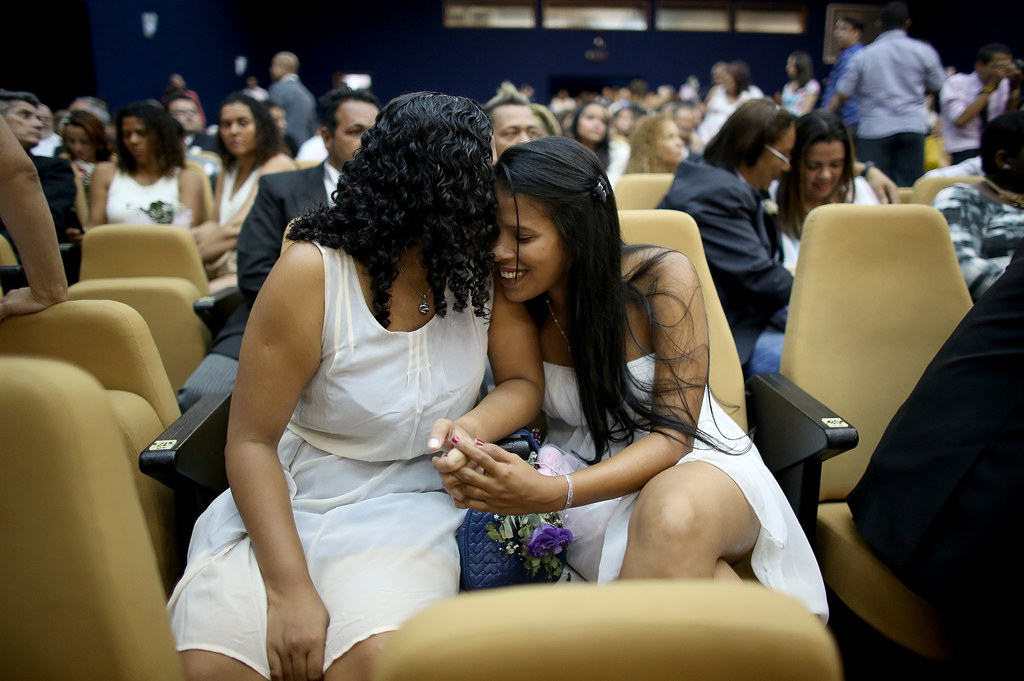In recent weeks, the focus of the Australian marriage equality debate has shifted from watching the parliamentary numbers to discussions of liberty, free speech, and religion.

Despite serious lobbying efforts for marriage equality dating back some eleven years, many against the reform believe the national debate has not reached beyond superficial considerations of equality and love. One thing the nation is yet to discuss, they say, is religious freedom.
The Australian newspaper has editorialised in favour of "a deeper debate" on religious freedom, mere days after calling for marriage reform to be dealt with sooner, rather than later. Human Rights Commissioner Tim Wilson wants to avoid acrimonious legal battles, Australian Marriage Equality national director Rodney Croome believes there will be no change to existing freedoms, and some anti-marriage equality advocates, including the Australian Christian Lobby and Angela Shanahan, see marriage reform as an inevitable assault on religious liberty.
Much of the discussion has been prompted by the landmark U.S. Supreme Court decision in late June. Unlike the U.S., Australia does not have a bill of rights, and marriage equality will most likely be introduced by the parliament, not the courts. But religious groups in Australia feel similarly maligned in the face of an advancing same-sex marriage movement.
Carolyn Evans, Dean of the Melbourne Law School and religious freedom expert, says legalising same-sex marriage is not in itself an assault on religious freedom.
"Religious freedom requires that you have the freedom to order all your affairs and your life in consistency with your religion. It doesn't mean other people have to live their life in the same way," she tells BuzzFeed News.
"So if your own religious beliefs are, for example, that same-sex relationships are wrong, you shouldn't be forced into a same-sex relationship," she says. "But that doesn't mean that because it might make you feel uncomfortable, or worried, or even marginalised, that other people take a different view, that your religious freedom is being breached."
What would be a conflict is if religious ministers were compelled to carry out same-sex ceremonies that ran against their beliefs, Evans says.
The good news for Australian religious celebrants? It's extremely unlikely that a bill without such exemptions would pass the Australian parliament. Several politicians who publicly support same-sex marriage have spoken about the importance of such protections, and all bills currently in the parliament include them.
According to Rodney Croome, national director of Australian Marriage Equality, this means religious freedom won't be affected by marriage equality "at all".
"If churches have the right to discriminate at the moment, they will continue to have that right," he says.
Laws allowing religions to discriminate on the basis of sexuality vary from state to state. Among them include exemptions allowing religious schools to sack teachers and expel students for their sexuality, and allowing religious adoption agencies and foster care providers to automatically reject same-sex couples. These exemptions are covered under acts pertaining to anti-discrimination, adoption and others, says Croome – but not the federal Marriage Act 1961.

However, conservative commentators say an exemption for celebrants alone is insufficient. Writing recently in The Australian, journalist Paul Kelly questioned whether legislating for same-sex marriage would "deny conscience rights to much of the population".
The most high-profile cases of ordinary people arguing for the right to discriminate against same-sex couples on religious grounds tend to be that of wedding service providers – bakers, florists, caterers, and so on. Mostly, courts have ruled it is discriminatory to not serve somebody on the basis of their sexuality, and to some, this constitutes a serious breach of religious freedom.
It's an argument often used by the Australian Christian Lobby, a potent anti-marriage equality force in Australia. According to managing director Lyle Shelton, same-sex marriage and religious freedom are "incompatible".
"In America and Europe individuals who exercise their conscience and publicly manifest their belief in the timeless definition of marriage are routinely being hauled before courts and tribunals," Shelton says.
"All of the debate of the past five years has been about forcing people of conscience to bow to the new definition of marriage."
According to Evans, exempting religious ministers from marrying couples against their faith is "a reasonable balancing of the rights". Less reasonable, she says, is allowing bakers, florists and other service providers to turn people away.
"Generally in Australia, we have said that individuals who provide a service are not allowed to discriminate just because it happens to be consistent with their religious views," she says.
"There comes a point where you have to say, if you want to be in the business of providing cakes, that you provide the cakes. I don't think that's such a substantial intrusion of religious freedom that it's a problem."
Evans thinks there will be disputes in the Australian legal landscape, but less so than the U.S.
"My best guess is there will be less litigation and certainly less protracted litigation simply because there are not that many legal protections for rights, for example, of religious freedom in Australia," she says. "It will make it harder to bring a case."
Tim Wilson, the Australian Human Rights Commissioner, tells BuzzFeed News he is eager to avoid the legal battles of the United States.
"I don't think that's a sensible way forward for our country," he says. Wilson, who is a supporter of same-sex marriage, wants to see an approach that is genuinely conciliatory, rather than divisive.
"My question to religious communities is, how do we design a law to address the concerns you raise? I think out of this process we should be a more united country, rather than a divided one."

Croome says he "questions the motives" of people wanting to extend anti-discrimination protections into services and beyond.
"They say they're protecting religious freedoms, but what they're really proposing is to roll back the protections that ordinary Australians currently have when it comes to discrimination in employment, education and goods and services," he says.
According to Wilson, the contention over religious freedom will dissipate once reform occurs, and people move on.
"Over time people will start to realize that same-sex couples marrying isn't a threat to the institution of marriage... and equally, that it isn't a violation of people's religious freedom," he says. "But there are some people today who feel that way."
However, those opposed, and calling for caution, remain unconvinced that same-sex marriage is not designed to impose a secular agenda on religious groups.
"There is a long way to go before thinking people could have confidence that the same-sex marriage political agenda does not reach far beyond the slogans of 'equal love' for two adults," Shelton says.
In response, Croome says he has one aim, and it's simple: "We want same-sex couples to be able to marry under civil law."
The Catholic Church in Australia did not respond to multiple requests for comment by deadline.
